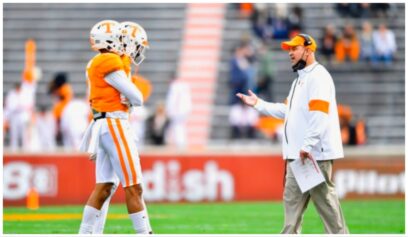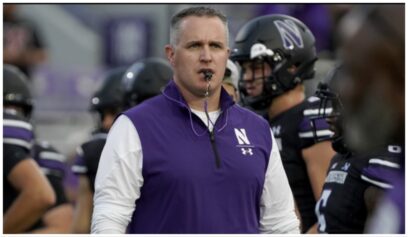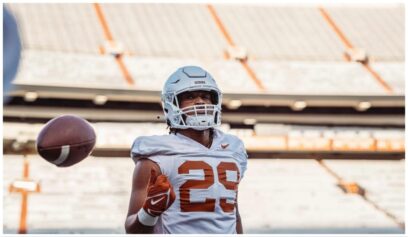This is Part 1 of a two-part piece on ESPN's "30-for 30 series" The U: Part 2
The Miami Hurricane’s dark knight, wild, wild west-style domination of the college football landscape in the 80's is an era most conservative football fans want to ignore. A time when the supposed bad guys ruled the land and blasted on America’s beloved and legendary college programs with an AK firing bold, black bullets of football funk.
Back then, those throwback fans who believe that a receiver should humbly flip the ball to the referee after scoring a TD and a cornerback shouldn’t taunt a receiver and his QB after crushing them with a pick six, hated The University of Miami, college football’s “Team Of The Decade.” It was a time when being brash, confident, hip, gangster, misunderstood and even criminal-minded was par for the course.
ESPN will be airing a sequel to one of its most popular installments in the "30 for 30" series, The U, which followed the rise of the Miami Hurricanes football program in the late 1980s, when the cocaine trade, celebrity, music and descendants of the “hood” came to the beautiful city of Coral Gables, creating ever-lasting controversy and transforming the university into a legendary football hot-bed.
The highly-anticipated piece airs on Saturday, Dec. 13th at 9pm ET on ESPN and reunites director Billy Corben and producer Alfred Spellman as they focus on the second rise of the Hurricanes in the late 1990s and early 2000s.
An ESPN spokesperson explained this about the project:
“The original film followed the transformation from a Miami football program that went largely unnoticed to 'The U' and all that [associated with it] both on and off the field. It became a cult classic and remains one of the most talked-about '30 for 30' films we've ever done. But that narrative didn't end in the early 90's and this sequel will pick up where the original left off."
The idea for a sequel to The U has been kicked around, seemingly, since the first documentary aired in 2009. Per Michael Casagrande of the Sun Sentinel , former Hurricane Najeh Davenport was pursuing the project in 2013, although his version was unaffiliated with Corben and does not appear to be affiliated with the current sequel. The Shadow League’s own CEO Keith Clinkscales (also CEO of P. Diddy’s Revolt TV) is an Executive Director of the film.
Corben is a University of Miami alum, and in addition to The U, he is also the mind behind Cocaine Cowboys, a 2006 documentary about crime and cocaine around Miami in the '70s and '80s.
In his Director’s Take, Corben explains why The U deserved a Part II.
“A rarely discussed fact that I regret didn't make the final cut of The U (Part 1): A year after Howard Schnellenberger took over the Miami Hurricanes football team in 1980, he received some lousy news. The NCAA was launching an investigation into the program due to alleged violations committed under previous head coach Lou Saban. To add insult to injury, the transgressions were reported by the former coach of the in-state rival Florida Gators. The result was the only time in his 50-plus year coaching career that Schnellenberger ever had a team sanctioned by the NCAA. Despite that, Howard led the Canes to their first national championship in 1983 and begins a dynastic winning tradition — with four national championships under three head coaches in less than a decade — that would see the Canes christened "The Team of the '80s."
Nearly 12 years later, Butch Davis was hired at The U under similar circumstances. In Davis's first year, a Sports Illustrated cover story called for the abolition of the Hurricanes football program for misdeeds that predated his arrival. Debilitating sanctions cost him 31 scholarships and a bowl game. Undeterred, Davis built not only the greatest college football team of all time but also arguably one of the best NFL teams ever assembled. The season after Davis left for a gig in the NFL, first-time head coach Larry Coker ushered the Canes to their fifth national championship.
Nine years after that, Al Golden arrived and found himself under yet another cloud when the Nevin Shapiro "rogue booster" story broke a mere eight months into his tenure. An NCAA investigation and sanctions followed and round and round and round we go. They said Schnellenberger couldn't do it. They said Jimmy Johnson and Dennis Erickson and Butch Davis and Larry Coker couldn't do it. Leads you to wonder if, in another five to 10 years, we'll have produced the first-ever 30 for 30 trilogy.”



